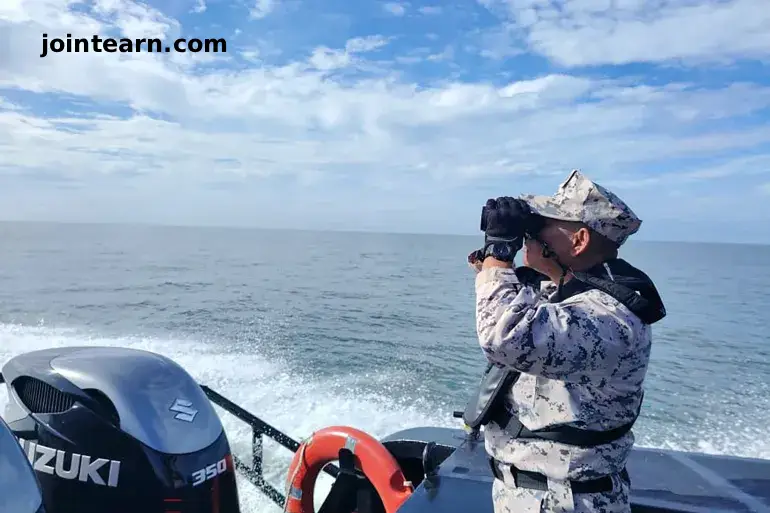
A migrant boat carrying about 90 people has capsized near the Malaysia–Thailand maritime border, leaving one person dead and dozens missing, according to Malaysian authorities. Rescue teams have launched a major search and rescue operation off the coast of Langkawi, as fears grow for the missing passengers.
Malaysian Authorities Launch Urgent Rescue Operation
The Malaysian Maritime Enforcement Agency (MMEA) confirmed that at least 10 survivors have been rescued so far, while two other boats carrying a similar number of passengers remain unaccounted for. Officials believe the tragedy occurred near Tarutao Island, north of the popular tourist destination Langkawi.
Local police chief Adzli Abu Shah told reporters that the ill-fated vessel was among three smaller boats ferrying migrants who had transferred from a larger ship to evade detection by border authorities.
“A boat carrying 90 people is believed to have capsized,” Abu Shah said. “Rescue operations are under way to locate survivors.”
Among the rescued individuals were three Myanmar nationals, two Rohingya refugees, and one Bangladeshi man. The recovered body has been identified as that of a Rohingya woman, according to state news agency Bernama.
Migrants Fleeing Myanmar’s Conflict and Persecution
According to reports, the group of migrants departed from Myanmar’s western coast around three days ago. Many of those on board are believed to be members of the Rohingya Muslim minority, a persecuted community that has faced decades of violence, discrimination, and statelessness in predominantly Buddhist Myanmar.
Reporting from Kuala Lumpur, Al Jazeera’s Rob McBride said that this route is a well-traveled maritime corridor used by refugees and economic migrants seeking safety and opportunity in Malaysia.
“Authorities believe the migrants set off from Myanmar, mainly from the Rohingya minority,” McBride reported. “This is a route frequently used to sail down the Thai coast toward Malaysia, where many hope to reunite with relatives already living there.”
Rising Dangers in Southeast Asia’s Migration Routes
Malaysia hosts millions of migrant and refugee workers from neighboring countries, many of whom are undocumented and employed in construction, agriculture, and manufacturing industries. The country remains a top destination for Rohingya refugees, who have fled waves of persecution and conflict since the 2021 Myanmar military coup.
The United Nations High Commissioner for Refugees (UNHCR) estimates that nearly one million Rohingya currently live in overcrowded camps across southern Bangladesh, while thousands more attempt risky sea voyages each year toward Malaysia, Indonesia, and Thailand.
However, these journeys are often organized by human trafficking networks, leaving migrants vulnerable to abuse, extortion, and deadly shipwrecks.
Previous Maritime Tragedies
This is not the first time Southeast Asia has witnessed such a maritime tragedy. In December 2021, more than 20 Rohingya refugees drowned in a series of boat capsizes off the Malaysian coastline. The UN later reported that 569 Rohingya people died at sea in 2023, marking the highest death toll in nine years.
Experts say worsening conditions in Myanmar—driven by civil war, economic collapse, and ethnic violence—have forced thousands to undertake desperate maritime crossings despite the dangers.
“The situation in Myanmar, with increased instability and ongoing civil war, is forcing people to take ever more dangerous sea routes in search of a new life,” McBride added. “Tragically, many of these journeys end in disaster.”
International Response and Humanitarian Concerns
Human rights organizations and refugee advocates have called for greater regional cooperation among Southeast Asian nations to prevent further loss of life. They urge governments to strengthen maritime patrols, combat human trafficking, and expand safe migration pathways for refugees and displaced persons.
Malaysia and Thailand, both common destinations for Rohingya refugees, face international pressure to uphold humanitarian obligations and improve refugee protection policies amid rising anti-migrant sentiment.
As rescue operations continue, authorities have yet to confirm the exact number of people missing. The MMEA says search efforts will persist “until all possible survivors are found.”


Leave a Reply